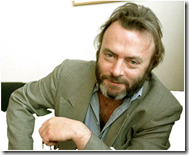Many of you have read about the flap over Notre Dame’s invitation to President Obama to speak and receive an award. If you’re not familiar with the story, Christianity Today gives a nice summary:
The University of Notre Dame invited President Obama to be the keynote speaker and receive an honorary doctor of laws degree at commencement on May 17. The invitation has created an uproar from conservative Catholics, since the President has taken executive actions that oppose the Catholic Church’s teachings on life ethics.
CT also interviewed Francis Beckwith, who is currently a visiting fellow at Notre Dame, to ask his opinion. Beckwith makes some insightful observations, in my opinion.
The honorary doctorate is more troubling than the commencement address because to give him an honorary doctorate in law is to say that he’s accomplished something in the field of law that the University of Notre Dame wants to honor. In the past three weeks, we’ve seen a number of different events, one of which was the change in policy on embryonic stem cell research. The problem is, the areas in which he’s been involved with legislation on the issue of abortion have been contrary to Catholic teaching. . . . I think if he were just the commencement speaker and not receiving the honorary doctorate, it would tone down the criticism. How can Notre Dame give him an honorary doctorate for excellence in something that our own theology teaches he isn’t excellent in?
But Beckwith raises an even bigger issue that has profound implications:
The real debate is whether theological claims can count as knowledge. . . . if we think theology is true and knowable, that means it’s no different than what we learn in literature or sociology or philosophy. If that’s the case, the university is where we should integrate these areas of knowledge.
If . . . Notre Dame were to terminate a faculty member for denying the Apostle’s Creed, you would hear claims that the faculty member’s academic freedom had been violated. Yet, if the university had terminated a chemistry professor because he denied the periodic table, nobody would object. That means that theology in some circles is not thought to be knowledge. Can one legitimately claim that one’s theological tradition is knowledge? Not only Catholic but evangelical institutions—can one legitimately claim that certain issues are settled? That’s really the issue. What are we to think of theology? Is it something we can know? I think it is.
An excellent point! If theology isn’t knowledge, I suppose it would have to be something like poetry – but no one accepts poetry as a basis for making moral or prudential decisions. As long as theology is considered poetry, it won’t carry much weight in real-world choices.



![Reblog this post [with Zemanta]](https://i0.wp.com/img.zemanta.com/reblog_e.png)